Is AeroPress Plastic Safe? Scientific Answer
There is no doubt that coffee tastes better when you brew fresh grounds with hot water…
However, if you are using a plastic coffee maker like the AeroPress, you might be concerned about the safety of the plastic.
After all, hot water interacting with plastic can cause potentially dangerous chemicals to diffuse into your coffee.
Is the AeroPress made of safe plastic?
Let’s see!
What Kind of Plastic Is Classic AeroPress Made of in 2025?
The AeroPress is a unique coffee brewer invented in 2005. The device has always been made out of plastic, and the manufacturer does not plan on changing this in the foreseeable future.
In 2018, AeroPress started using polypropylene plastic, which is what it still uses in 2025 for the classic Aeropress.
This plastic is BPA-free, lightweight, durable, and heat-resistant up to 130°C, making it an ideal material for coffee makers. It is also recyclable, so after using your AeroPress, you can recycle it instead of throwing it away.
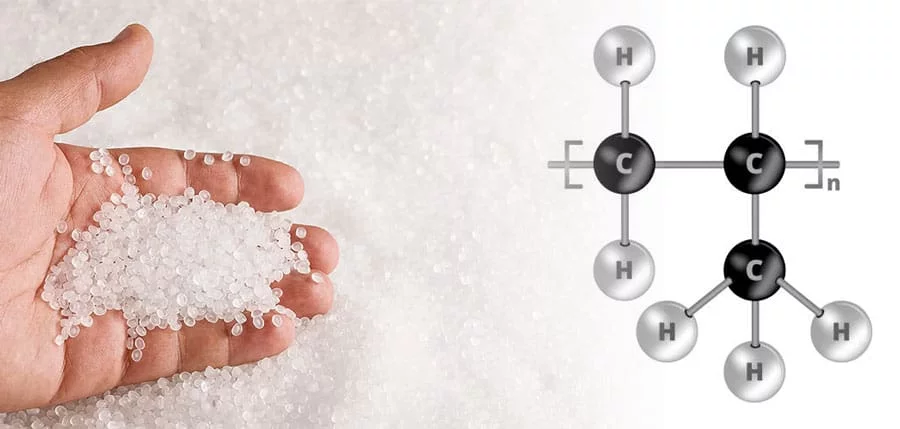
What About the Newer Aeropress Clear?
The newer Aeropress Clear launched in 2023 is made of Tritan™, a trademarked copolyester invented by a company called Eastman Chemical Company.
Tritan has been used in the bottling industry since 2007 and has been reported to be safe, since:
- It is a 100% BPA-free plastic, not manufactured with bisphenol A (BPA), bisphenol S (BPS), or any other bisphenol compounds.
- It is durable and shatter-resistant.
AeroPress Stopped Using BPA in 2009
I’ve heard horror stories of BPA-plastic AeroPresses, so I dug into it.
Before 2009, the AeroPress makers used polycarbonate with BPA in the plastic. BPA is a synthetic compound playing a significant role in plastic products. Unfortunately, experts link BPA to several health concerns, as it is a carcinogenic compound.
In 2009, AeroPress makers switched to BPA-free copolyester in all its products. This was a big move for the company, and consumers widely praised it.
And from the year 2014 to till today, you will find AeroPresses made of polypropylene. Polypropylene has no trace of bisphenol A either.
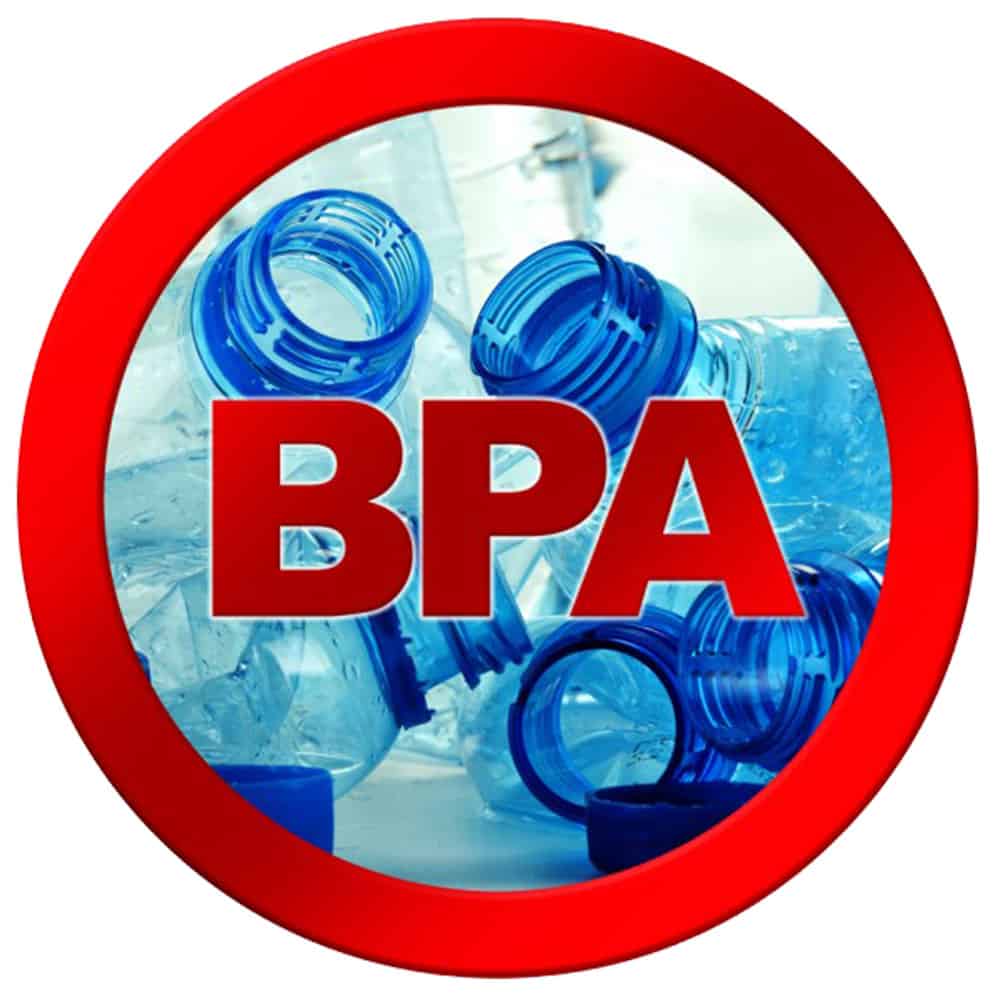
Is the AeroPress Plastic Safe to Brew With?
Some chemicals in the plastic industry are suspected to be endocrine-disrupting chemicals that can interfere with the way our hormones work.
The original model of the Aeropress is as safe as can be in this respect:
- Since 2014, Aeropress Inc. has used polypropylene to manufacture its coffee maker.
- Polypropylene is considered to be safe by the EPA and FDA approved.
- It is a durable, food-grade plastic used for many food holders.
- The seal at the end of the plunger is made of medical-grade silicone that can last long with proper care.
As a result, making coffee with the Aeropress is considered safe, but it does not rule out the possibility of microplastics getting into your coffee.
Hence the release of the glass AeroPress in 2025.
A Look at Whether There Is Any Evidence to Suggest the AeroPress Plastic Is Unsafe
Some people have expressed concern that plastic may leach chemicals into the coffee.
However, I have not found evidence that AeroPress plastic is unsafe for human use.
Could the AeroPress Leach Plastic Into Coffee?
You can never rule out plastic leaching into your food, especially if the plastic is damaged, scratched, or used to store food. But with that said, post-2014 models of the Aeropress use plastics that are safe and non-toxic.
Some studies found no leaching, but others found some leaching through plastic containers.
But let’s go wild, and let’s say that you sometimes use a polycarbonate AeroPress from pre-2009. A study by the Jordan University of Science and Technology found that BPA can leach into coffee, even from plastic coffee cups.
The hot liquid only comes into contact with plastic for a short period, but nevertheless, I would not use a pre-2009 Aeropress to make coffee.
But I would definitely keep it in storage, it might be worth a lot of money one day to a collector.
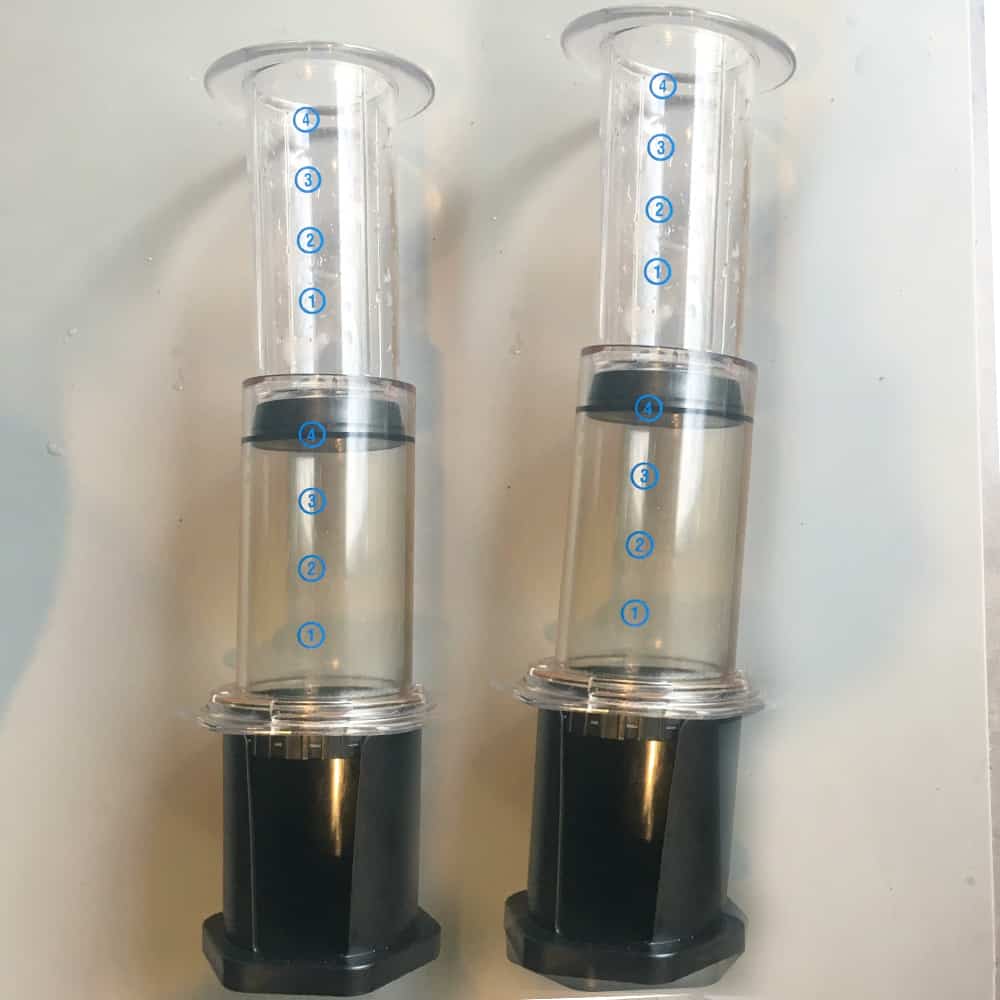
Will Boiling Water Break Down the AeroPress Plastic?
The primary material used to make AeroPress is plastic; we all know that boiling water can transform plastics adversely.
But the answer is no, boiling water will not break down a Tritan or polypropylene plastic Aeropress.
Polypropylene can withstand temperatures up to its melting point of 130 – 171 °C (266-340 °F). (source)
So go ahead and use your brewing water as you normally would. Your AeroPress can handle it.
FAQ
Non-Plastic Alternatives
The Premium AeroPress made of glass is the direct alternative, bnut it costs 4x more than the original.
Here is a review I wrote of the Glass AeroPress, where I talk about all of its pros and cons.
Also, you can buy an aluminum or stainless steel Moka pot, a stainless steel or glass French press, or make cold brew coffee without the liquids touching any plastic. The brewing process with these is different, though, so they are not a true replacement for the Aeropress.

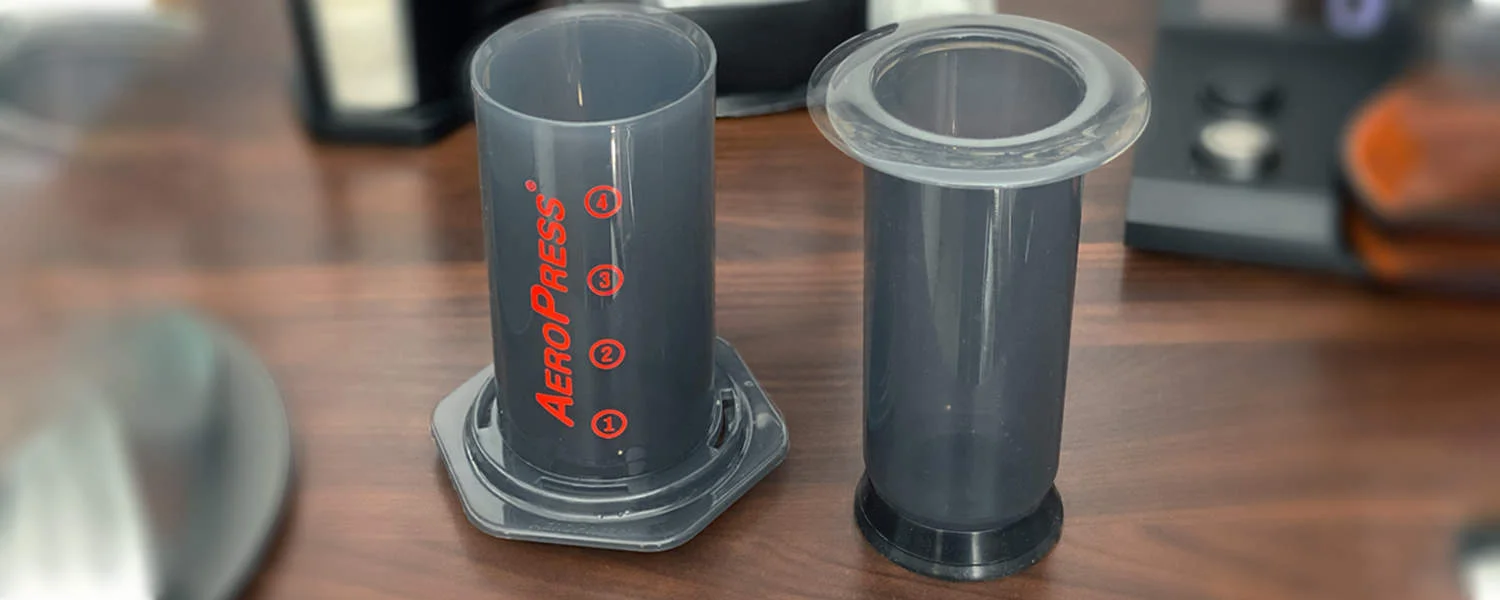

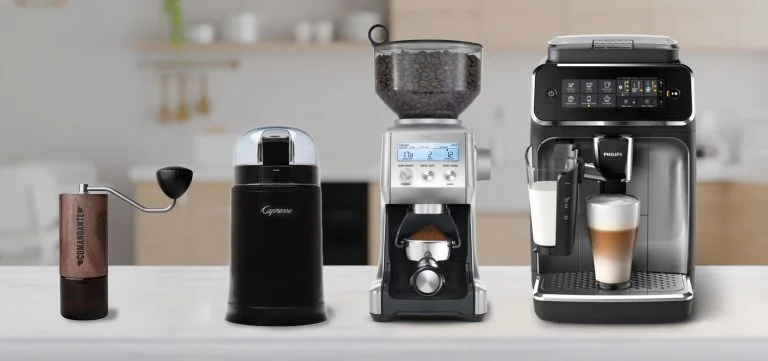
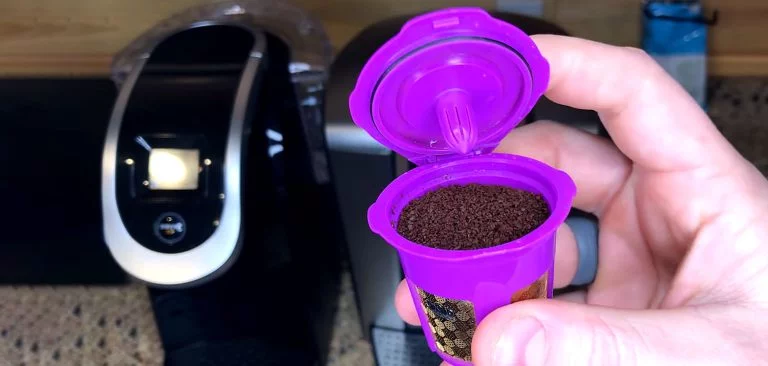

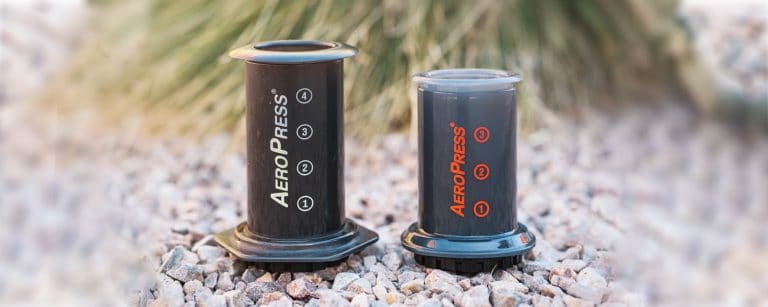


As a bio-chemist, I’m 100% positive Aeropress leaches microplastics into your coffee, as this is the nature of all synthetic and natural polymers, especially the former. It’s simply irresponsible to give misleading and even a clearly false information, while labeling it as a “Scientific Answer”. Same with plastic packaging: while most of them don’t include BPA / BPS these days, they do leach plastic particles into the food or the environment, ESPECIALLY if they are exposed to any heat, such as hot water or sunlight / UV light.
I guess the only way to show the evidence would be to test the coffee and see if it contains micro plastics after being pressed through an Aero Press.
Yeah this post is very misleading and doesn’t mention the microplastics that get into food and drinks from “microwave-safe” and “BPA-free” plastics. Any plastic is is unsafe for consumption, FDA-approved or not.
https://www.wired.com/story/for-the-love-of-god-stop-microwaving-plastic/